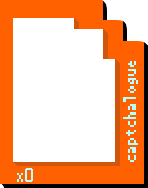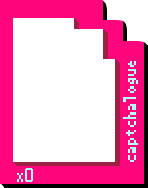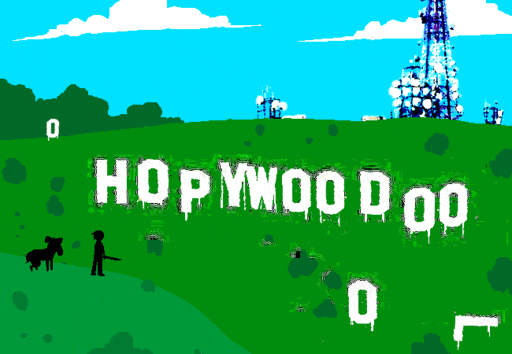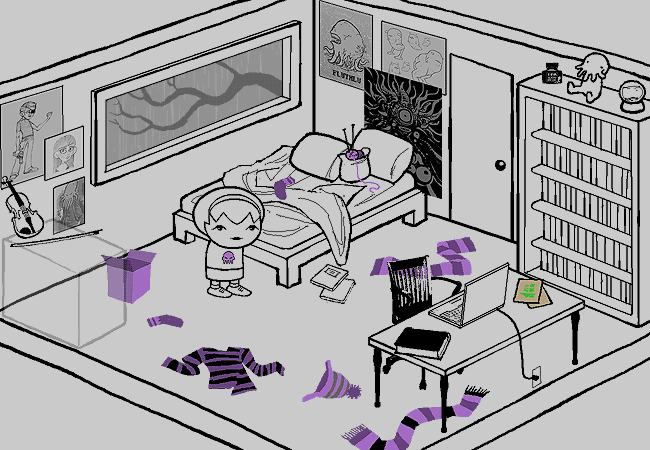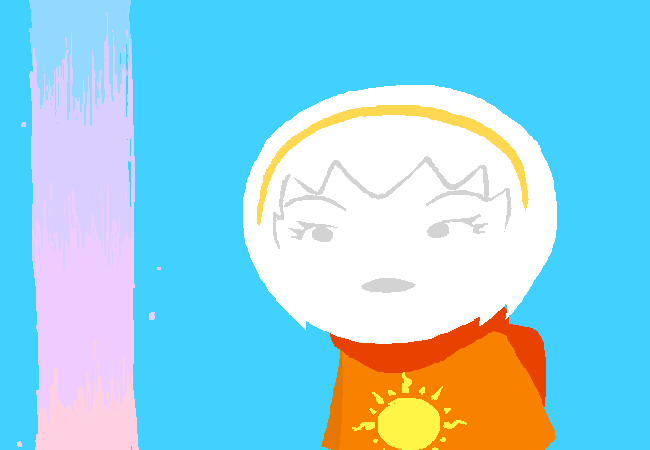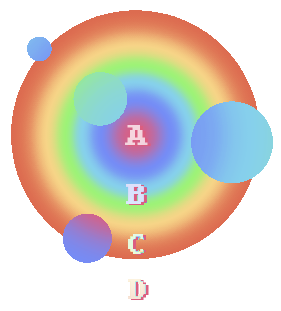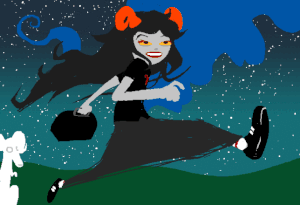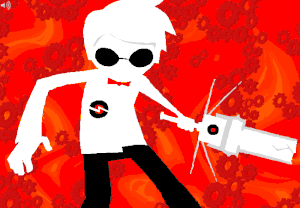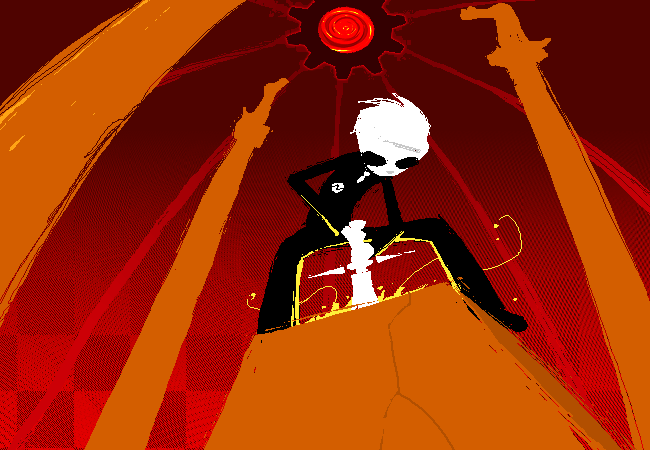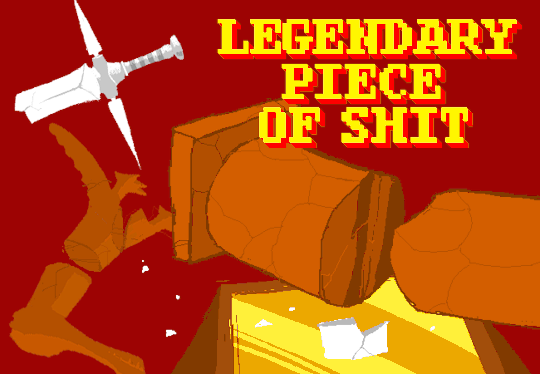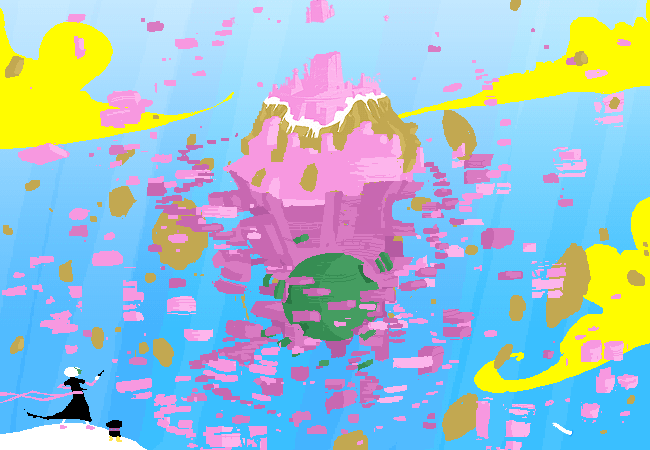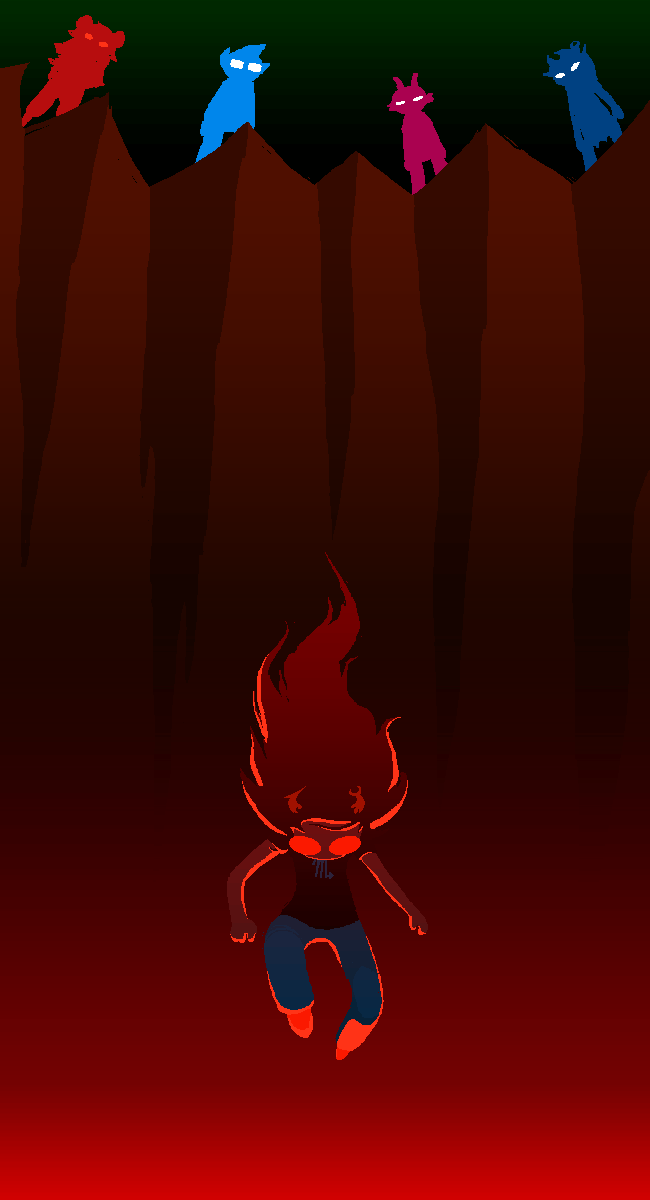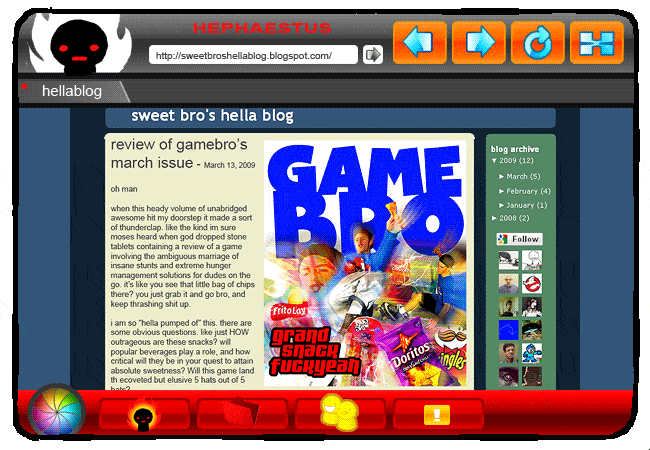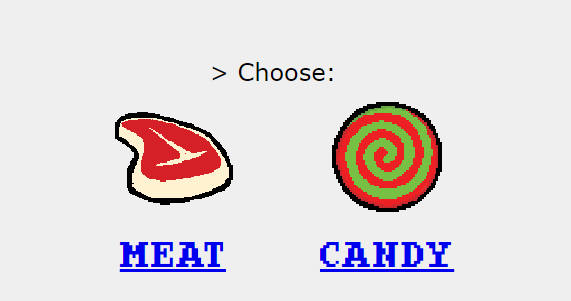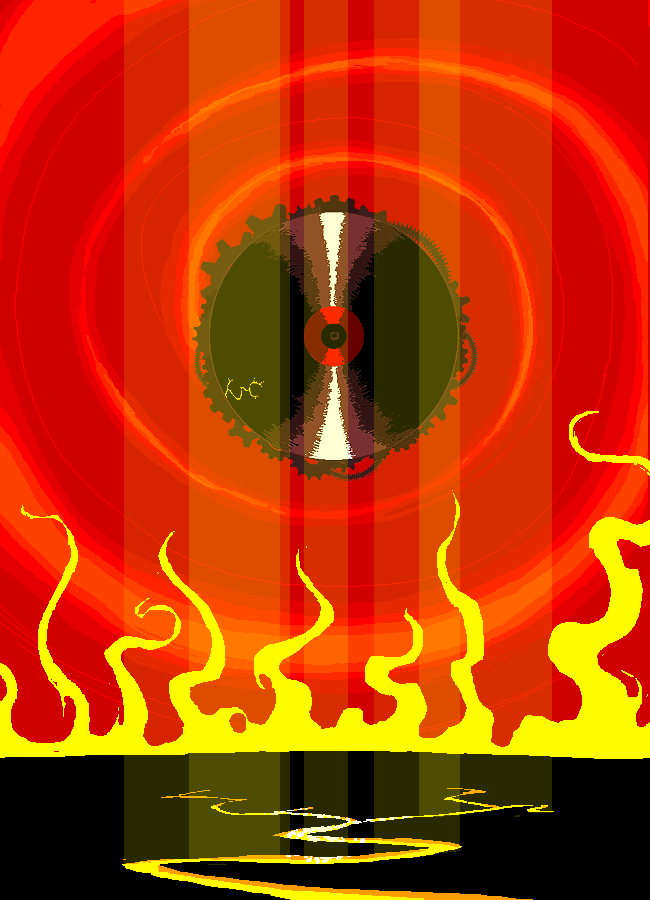THE VRISKA OF IT ALL
Ok so everyone knows Vriska. Or at least everyone has at least seen Vriska somewhere. One million locked threads of #vriscourse over a decade long and yet people are still weird abt this freako til this day. Vriska is probably going to outlive most things in history. But regardless, there's a reason why she can still evoke such a visceral reaction in so many people even years after the original run of Homestuck ended.
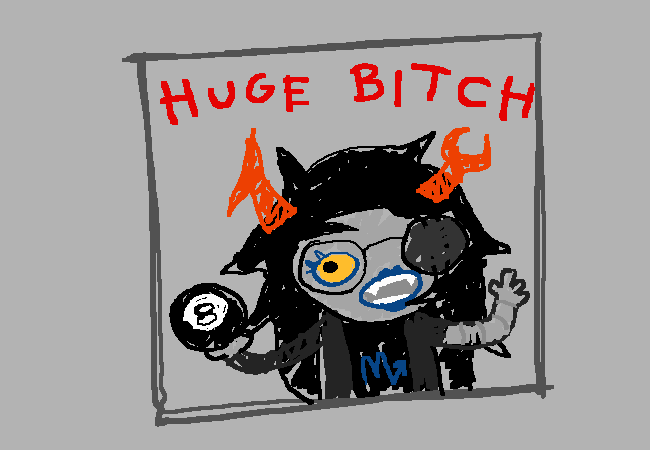
Vriska Serket is a character intended to divide audiences, built from Hussie's own time spent observing forums and other online spaces. What if someone consistently hurt people, did "bad" things, and never apologised for it? If they insisted they were in the right, despite all the damage they did? But, also, what if all of these actions could be blamed on some other, more malicious influence? Would this person be truly evil, or are there other forces to blame? And, redditors beware, what if she was a GIRL? We can see Hussie's intentions - albeit cloaked in many layers of dicking around - by having another peek at the commentary.
"Who is the most trollish troll in this group, what are the traits that someone fitting that description has, and what form will they take in terms of personality and role in the story? Vriska is the result of this effort, and one way of looking at her arc in the story is as a simple exploration of what it means to draft a character designed to have the ultimate troll profile. Being the ultimate troll doesn't necessarily mean being the biggest asshole (though there are times when she gets that award too). It means being the most controversial. One designed to incite, to maximize drama and division, inside the story and out."
"Since serving as the ultimate troll, fandom wedge, and escalator of drama is an inseparable part of her profile, by extension the narrative has a way of constantly dragging her back into the spotlight to keep stirring the pot, ratchet up controversy, and continue forcing the plot forward by dint of her overbearing personality and need to be important. Whether she's the one forcing her way back into the spotlight all the time due to ego, or it's actually the narrative always pulling her back in as a preferred tool of effective melodrama, thus giving her a reputation as someone favored by the author as a vehicle for mayhem and controversy, is left for readers to decide."
- Author's Commentary, pg.2196 & pg. 2197
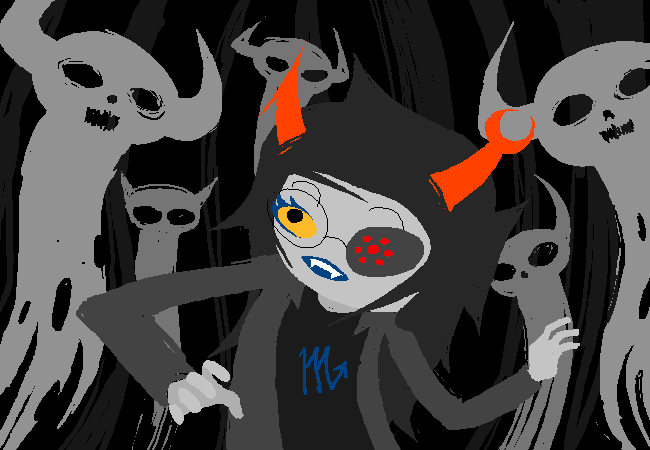
"All this talk about insidious malefactors whispering in Vriska's ear and warping her thoughts, and Word of God admissions that this is exactly what's happening to her from multiple fronts at once, should help stoke the fires of Vriskourse and give a lot more ammunition to her apologists, who like to point out that nothing Vriska does is ever really quite her fault. There's a word for these people: heroes. They are absolutely right, and if you take one lesson from these notes, let it be this. Vriska has done nothing wrong. Not even once in her life, and she never will."
- Author's Commentary, pg.2246
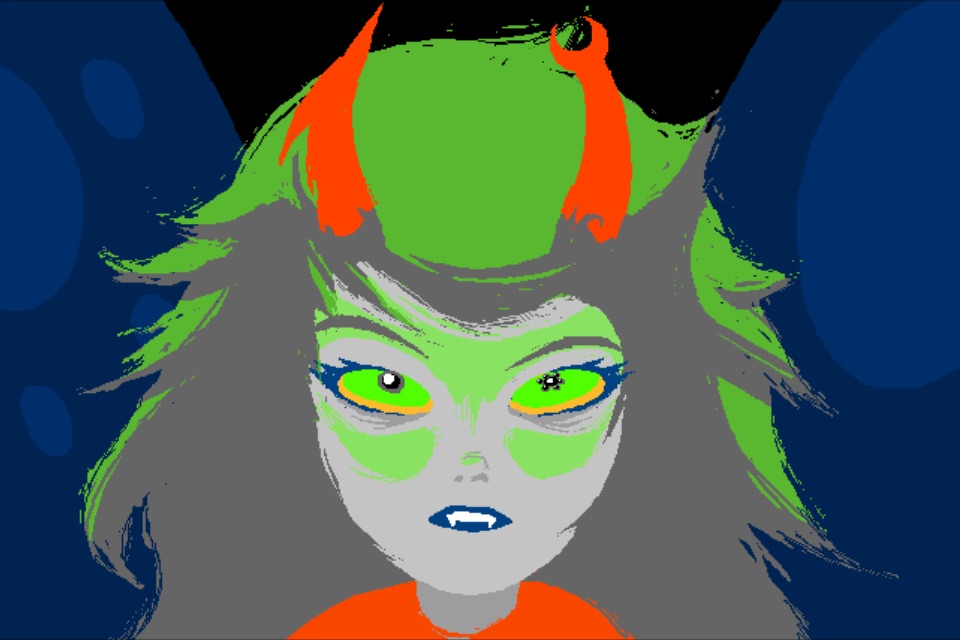
The ironic thing is that the narrative itself insists on the importance of Vriska. The story frames her as someone akin to a key item, one that the Homestuck itself literally cannot be finished without (You could chalk this up to Classpect theory if that's your cup of tea, with how her design revolves around stealing relevancy and forcing her way into the forefront of the story, but that's for another time).
But regardless of all the more meta aspects of her character, she still has a very compelling "arc" that she goes through. There's a lot to be said about how Hussie designed the structure of the trolls, and the caste system - and that works with the gendered roots that consistently rear their head in Vriska's story. As I mentioned in an earlier textbox, Homestuck uses roles - and the audience's expectations surrounding them - to build up many characters and beats within the story. Vriska is a great example of this. The people she interacts with, the game they all play, and even the Narrator tend to reduce her to a role on a chess board. She's an alien, a cerulean blood, she's the Thief of Light, and so on. Vriska's motivations always revolve around either playing into or discarding these assigned roles.
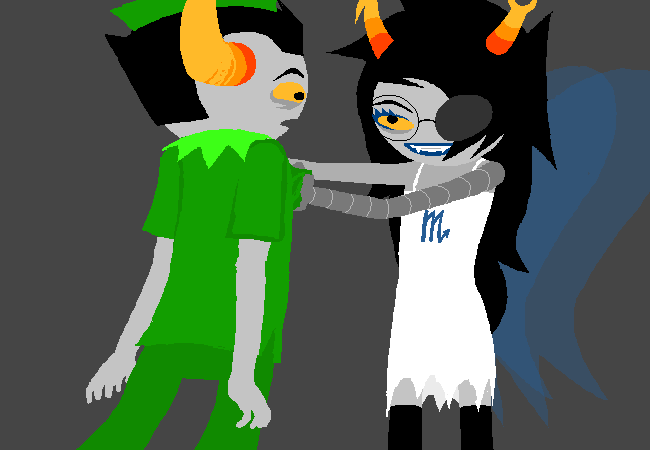
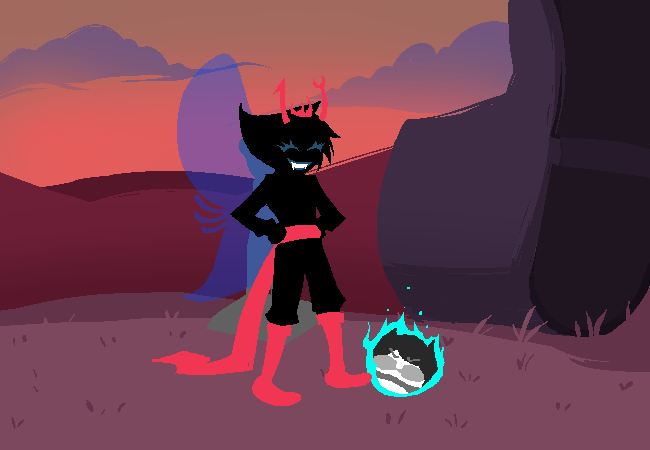
Homestuck pg. 2379 & Homestuck: Beyond Canon pg. 727
These struggles show up particularly often in Hivebent, and now have even reappeared in post-canon (though in a different form); she's indecisive and insecure, torn between adhering to what she's told she should be, versus what she wants to be. While she isn't the only one in the story to be given this dysphoric relationship to her supposed "function", she has some of the most consistent vacillation with it by a long shot. Also probably helps that she's literally transgender, but considering how textual that is I don't feel lke I need to explain how it fits in with what we've been talking about here.
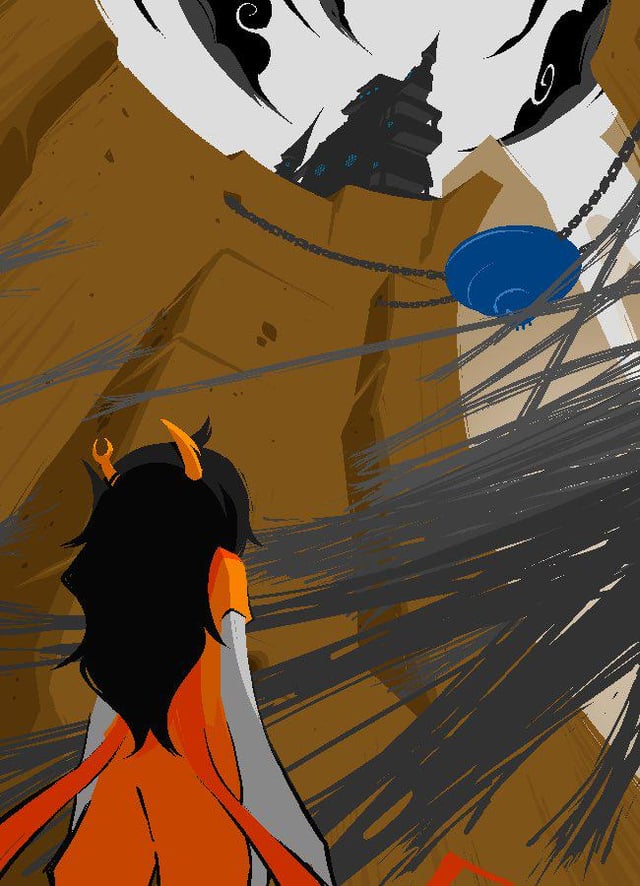
Anyway, I don't have much else to say about Vriska. Or at least right now I don't. I'm gonna go reread the Vrisual Novel. Bye
